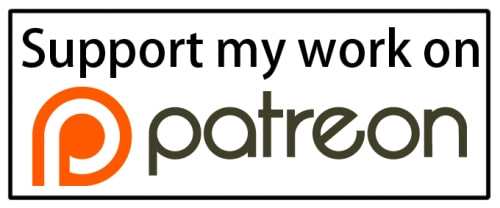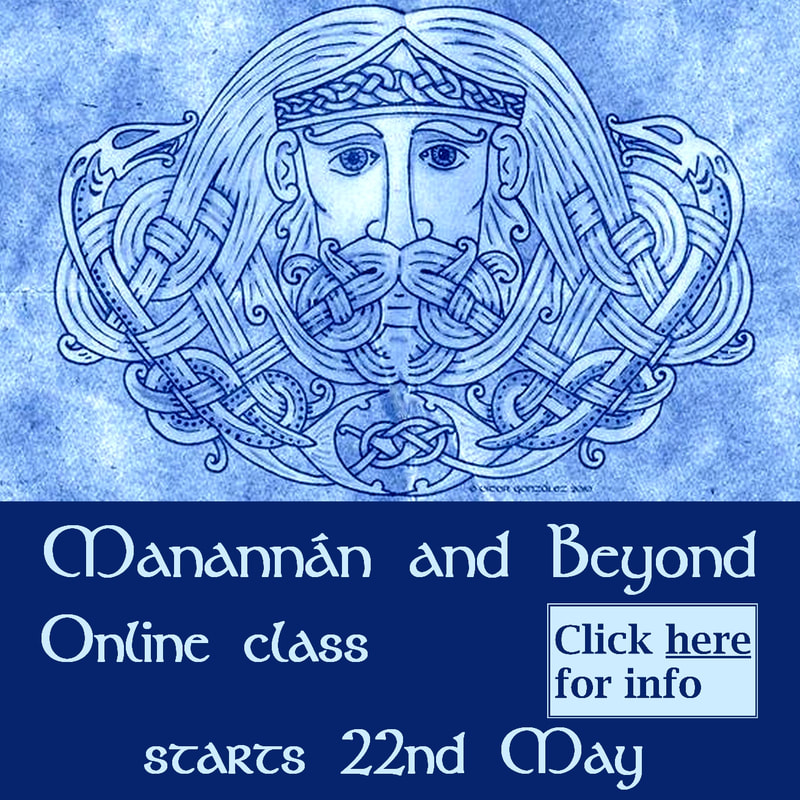Rhiannon's Dream
On an evening fine
In a meadow green
Horses graze
And laze and play
Red poppies grow
Among the grass
In the sun
Of a summer's day
Red poppies change
Their shape becomes
Like exotic cranes
While horses play
They rise and flutter
Red butterflies now
As horses wonder
As horses gaze
Red butterflies
Turn now to white
They fly round faces
And light with love
They gently play
As horses stand
In awe of this
At end of day
White butterflies
Become white birds
In flocks of white
They rise and fly
Above the meadow
While horses watch
The magic sight
As evening falls
- Kris Hughes 2014
|
This poem describes a dream I had maybe seven or eight years ago. It was so full of wonder that I've remembered it quite vividly, although I don't begin to understand its meaning. Recently, a friend who did a Shamanic journey on my behalf urged me to begin working with the goddess Rhiannon. In doing so, I've become convinced that this dream was a gift from Her.
0 Comments
Recently, in Salmon in the Weir, I referred to a dream I had, where I felt that I was being told to capture the salmon, which is a symbol of knowledge, by writing down my dreams, and other possible revelations, from things like card readings or meditation journeys. Many of us love the written word, me included, but I also recognise that it can create limitations for us. When we write something down we risk setting it in stone, and somehow "killing" what we were trying to preserve. The written word takes on more import than the thing we tried to describe. This does not have to be so, of course, but we need to allow our insights to have a life, not stick them in a museum. Also, writing something down, filing it away, putting it on speed dial, is a great way to abdicate responsibility for remembering it at all. Could you remember a friend's phone number for a week without writing it down or storing it on some device? I'm sure you could, whether you think so or not, but I'm sure most of us don't bother anymore, because we think the information is "safe" for the time when we need it. How would you gaze differently on a beautiful scene while on a rare holiday, if you hadn't just snapped a couple of digital images of it? Would you let it fill your eye and your soul, making it part of your deepest memory - rather than hurrying on to the next item on your itinerary? You might also remember that in my dream, there was some confusion in my mind between a weir (a device to trap fish) and a salmon ladder (which facilitates their journey upstream). Now I think I understand this. Trapping the fish, via a reading or a dream, etc. is only the first step. You need to get the essence of the knowledge it contains upstream within you. Let it climb the ladder up into your consciousness and into your everyday thinking. 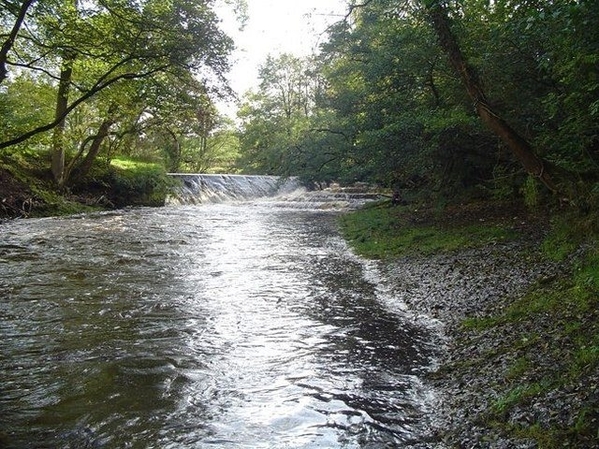 In Celtic myth, there are many tales of magical Salmon. The Irish story of Fionn Mac Cumhaill tells how the young hero accidentally, and innocently, tastes a salmon of knowledge which is supposedly intended for his master. His true identity as a great person is then revealed and he is transformed both in status and ability, after his master tells him to go ahead and eat the whole fish. I think that this is an important part of the story. Fionn's act of accidentally licking some juice from his thumb seems merely to confirm him as the person for whom the salmon is meant, but it is the eating of the entire salmon that brings about his transformation. I like this picture. A salmon of any size - and this was said to be a very large one - takes some eating! Think of the repetitive act of this eating. Slice after slice, bite after bite. Did each mouthful taste the same? Did each chewing noticeably add a new layer of knowledge? Was there a time when Fionn felt full, and thought that surely it would make no difference if he left some portion uneaten, after all? We'll never know, of course, but I'm sure we've all been there. This is interesting, though. Fionn didn't just write "Today, I tasted a drop from the Salmon of knowledge," in his daily journal and then somehow magically he became great. He sat down and engaged deeply with his gift. He gave it respect, he gave it attention. Those of you who have had a reading from me will know that I place a lot of emphasis on working with the material in that reading, of spending time with the information in meditation, contemplation and study. Believe me, I know that this isn't always easy to do. I have had some very profound experiences - with my cards, in dreams, in readings from others, and in meditation. These can be humbling and awe inspiring, and yet in a few hours I am caught up in whatever life puts in my path, and if I'm not careful - nothing comes of it. Well, I am trying to do better. I'm trying to learn to "clean my plate". To follow through with ideas until I understand what action to take, and then to take that action. It's a tall order, but I feel more honourable when I do it, and I think my life goes a little more smoothly, too. What I know is impossible, however, is to implement all the things I find immediately - just as Fionn did not go out and do a lifetime's worth of heroic deeds the next morning. However, he did acknowledge the transformation and he did begin the journey. I know that my journey is nowhere near completed. It's uneven, sometimes it gets stalled, but I am on it. I do my best to follow the signposts, check the map and make progress - and I try not to forget to enjoy the experiences along the way. In Salmon in the Weir, I mentioned that I was going to put some things on my walls. At the time, I had recently had what felt like a very important session and reading with someone. He had given me some homework. Things to do and say in order to be more at peace. I liked the ideas, but was uncomfortable with some of the details, so I let it slide for a few weeks. The day I wrote that piece, however, I adjusted the wording and printed some things out, nicely, on my computer, glued them to some beautiful photos saved from a scenic calender, and put them up in my bedroom. The change for me has been positive, and I feel pleased that I took the trouble. This is just one of many ways to make an adjustment. What I liked was the concreteness of it. I still have a backlog of actions I would like to take based on readings, etc. but I hope to hold myself to account. I intend to do it with patience and compassion, but I will be honouring each bite of the salmon, if I can. You can read a little more about how the posters I made for my bedroom developed into prayer cards in Latest Projects, and you can buy my set of Four Celtic Prayers on beautiful cards.
A look at Judith O'Grady's book God-Speaking
UPDATE 2021 A second edition of this book was released under the title Gods-Speaking, with a different publisher, Gods and Radicals Press, in 2019. Judith O'Grady died in December, 2020.
I love this little book. As soon as I began reading it I was touched by its honesty and originality, and entertained by the author's voice. She manages to honour the seriousness of her subject matter while keeping the tone light and the language clever and often hilarious. Judith O'Grady is God-Bothered. "God-Bothered" is her name for those who hear the voices of deities. Individuals who were once called mystics, prophets or shamans -- or sometimes heretics and lunatics. Individuals who in our time are likely to be called schizophrenic, delusional or liars.
O'Grady begins by addressing these issues head on. She points out that an intelligent and clear-thinking God-Bothered person, far from taking the position that everything might be a message from the gods, knows that they must sift and test the validity of each experience on an individual basis. Whereas the non-believer simply rejects everything of this sort, and the truly "crazy" person tends to believe everything without any critical thinking. She then goes on to talk about the practicalities of this sifting process. That's another thing I like about this book: it raises practical questions and offers practical actions where it can. Although it is not a "how to" book there is much here to help, encourage and instruct the God-Bothered among us. As someone who has occasional mystical experiences, I can say that this book has been an immediate help to me.
Ms O'Grady is a coherent and perceptive thinker, and some of her insights into the modern world, modern religion, and modern Paganism, may make uncomfortable reading as they hit home. However, this book contains no attacks, merely observations, and is written in a spirit of love and helpfulness, albeit a "cut through the B.S." one. O'Grady wastes no sentimentality on modern thinking that is often more fuzzy than fluffy, and which tends to project very modern values and mindsets onto our ancestors, to whom concepts like equality or democracy would have seemed outlandish. Although the author offers us some scant anecdotal information about her mystical experiences and their messages, she seems unsure as to whether to give us the full gospel until the last couple of paragraphs of God-Speaking. If she really has a message for us perhaps it is to lose our sense of shame about hearing the gods. She spends some time on the Gaia theory (she agrees with it) and some time looking at the anthropocentric stance of most modern people -- Pagans included. I think she is right about this, but I am not convinced that her world view really moves us away from it. (Perhaps I will cover that in another blog post.) However, the final message is both profound and positive. I won't ruin it for you through paraphrasing. I hope you'll read it for yourself. God-Speaking raises interesting practical questions, such as: "What place do visionaries have in our culture?" and "How do we support the mystics among us?". These are questions I think spiritual communities everywhere, and the Pagan community in particular, need to address. Modern people seem especially fearful of this whole area of spirituality. It's considered worrying or suspicious for modern people to admit to a personal experience of communication from a deity. It's in poor taste to talk about it, and a kind of modern heresy to suggest that one's wider community should consider taking any practical action based on reports of such an experience. In the Pagan community, the phrase unverified personal gnossis is often used scornfully and dismissively. The fear and suspicion of cults, gurus and charlatans is understandable, but perhaps god-seeking communities need to develop more openness and better techniques of discernment when it comes to personal gnossis, or risk missing out on input from the most important source of all. God-Speaking is published by Moon Books, and available from Amazon, etc. If you enjoyed this post, you might like my series Visions in Meditation. I've had a growing admiration for John Moriarty's ideas over the past year or so. My first introduction to him was via a short video interview with him, during which I constantly found myself nodding in excited agreement with most everything he said. One moment I would either think "Wow! I thought I was the only one who had felt this or noticed that - but he gets it, too." Then, he would say something else and I would be floored by its originality and complete aptness, and it would be an angle on something I had never thought of. I found some of the ideas in Invoking Ireland much easier to express with these quotes and pictures. You can click them to see larger versions. So began my occasional reading of an interview here, an obituary there (John Moriarty died in 2007), some small pieces of his writing available on line and so on. His books were a little hard to locate at first. They are more readily available from sellers like Amazon, now, or you can go direct to his fabulous publishers Lilliput Press. So, let's talk about my favourite of his books, which is also the most accessible - Invoking Ireland. The book has been a joy, and not such heavy going as I had feared. You would find some basic knowledge of Irish mythology useful, it's true, and maybe a smattering of Irish history, as well. However, the book also has a glossary. The first couple of chapters drew me in. The theme of our existence in various realms of reality, how they mesh or exist in parallel - what this means for our shapeshifting nature between human soul and animal soul, is introduced with gentle enticement. As the author leads us into the experiences of Amhairghin Glúngheal, Fintan mac Bochra, Cormac mac Airt, Conaire Mór and a host of others, he writes mostly in the first person. Knowing John Moriarty's personal story somewhat, the openings of many chapters had me thinking "Ah! Now he is telling his own story." Yes and no. I think that all Moriarty's works are autobiographical in a sense, as all gnostic writing must ultimately be, yet this book is also every Irishman's story, and every human being's story. It's not all easy going. Questions are asked as the book progresses, and the answers are not always satisfactory, it seems to me, but there is great honesty and humanity in the attempt. The fact is, I did find it a heavy climb uphill through the first half of this book, once the romance of the first chapters had passed. Then, suddenly, we seemed to reach the brow of a hill, and find ourselves descending into the ease of a Kerry Puck Fair, and the story of a man forever changed by his own traditions - or perhaps I should say forever restored. This is followed by another very easily read chapter, entitled "Shaman". Again, I asked myself in the reading of it, whether the first person telling was just a convenience or more of a confession. This chapter is one of my favourites, and reads almost as a guided visualisation. A mere four pages, it is one I know I will return to again and again. It tells of a dream or vision, or perhaps a journey into another realm. The writing here is so much of one solid piece, that I struggle to find a simple quote. Shaman tells a story of the smoke of a turf fire, of turf itself, and of an inner prehistoric landscape experienced. Speaking of the sods he'd bring from the shed each night for his fire -- "They were older, I'd remind myself, than Ireland's oldest folktale," Moriarty tells us. "What that folktale was I didn't know, but how strange it was, crossing a yard at nightfall with a prehistoric landscape in a bag on my back." He goes on to tell how one night he sat by his smoking fire, and the reek of it worked a mystical intoxication on him, and he was transported to that ancient landscape. He found an ancient pair of boots there, and putting them on, he began a strange journey. There was a lake which "didn't mirror some things it should mirror. It didn't mirror a red horse on a ridge. It didn't mirror its own islands." He continued on, experiencing a wood stinking of death, and experiencing life as a tree being felled, until finally, "The two sides of the path came together. I entered thick darkness and I didn't see the house until, seeing an old man by the fire, I realized I'd already walked into it." Here, after a riddling conversation with the old man, the adventurer undergoes a sort of agony and death, until, "it death-rattled the life I'd been living, modern life, out of me." Part 2 of Invoking Ireland contains chapters on Lugh, on Manannan, and on Cú Roí. The chapter on Macha, worked as a beautifully crafted piece of storytelling, is another favourite of mine. There is quite a long chapter on Danu, as well, which is very moving, containing some startling moments of descriptive clarity -- both of nature and of the author's love for Danu. An understanding of a woman's love, bound up with the unfathomable love of a goddess, somehow comes to crystalise in the a description of a rowan tree growing there between the hills known as the paps of Danu. Storytelling and imagery rule here, as they always seem to, with Moriarty. Much of this book is a commentary on what Ireland has been, what it has become, but also the hope of what it could be again. Written at a time before the current economic woes, when Ireland was still very much the "Celtic Tiger", the author is keenly aware of what is being lost amid the success, and of what was lost in previous centuries. Moriarty used to say that he felt like he should show a passport when leaving his little rural corner of Ireland and entering the modern country. This book is mostly an otherworldly one, and yet the clues are there, encouraging not just the Irish, but all of us to look for some depth in things again, to learn to go with the grain of the land and its gods again. When this kind of commentary does arise in Invoking Ireland, it is blankly honest and incisive, but it never harangues. The point is made and we are back to the story. John Moriarty self-identified as a Christian and a Catholic, but as a Pagan reader I found that this book had everything to offer and I found little to discard and nothing to offend. It is interesting that the chapter in this book entitled Christ was made up almost entirely of quotes from other writers. As to why that should be, my only guess is that the author simply engaged with the material of the story of Jesus differently than he did with that of his indigenous gods. However, I was left in no doubt that he engaged with these gods at a deep level, and the best part for me has to be that in Invoking Ireland he did us the honour of reporting his findings in so beautiful and personal a way. No plenty without earth energy.
Introduction
This is the third of three visions I had in meditation recently. These may have partly been the result of saying a prayer which is addressed to the three deities Brigid, Manannán and Epona - I don't know. However since the first two visions concerned Brigid and Manannán I couldn't help but half expect to have a vision concerning Epona in the third meditation. I tried to keep my mind out of the way, so to speak, but I admit that it was more difficult this time, as I had an expectation which was difficult to suppress. If you are coming in in the middle of this series, and I'm not making things clear, then you might like to read the introduction to part one here.
I went to the beach once again in meditation. It got very dark. Storm? Nightfall? Of course, I thought, based on the prayer, that I "should" have a vision of Epona. Hmmmm...
At some point I remember thinking/saying that I would really like to see those forests and pastures I saw from afar in the first vision, with Bride. We went somewhere like that, briefly. It was full of colour and also full of predators and she struck at them with her forelegs in anger.
Everything went black. We were going down into a deep tube or tunnel. I couldn't see/feel anything, it was hard to stay "present". I think it was the terror/bliss of loss of control. This went on for a long time. I sensed that I wasn't alone. She was still there, but I must face it alone. Dark. Black. Emptiness. A feeling that it would split me in two. Power - energy - terror - bliss - death - birth all in one.
Finally it became lighter. I saw a red orange swirling stuff. Are we deep in the earth? I long for the surface, for plants, soil, water - but she is only concerned with energy!
~ ~ ~
I came out at this point. I think I was trying to make a landscape in which to exist, and when I saw it, it was devoid of biological life. However, I believe that this was the work of my mind and I stopped there.
Thinking on this, Epona doesn't bring us baskets of fruit or grain. She isn't a horse, or a woman -- She is an aspect of the earth itself. Perhaps She is the earth. The animating force, the energy without which life is not possible.
If you enjoyed this post, you might also like Moon Drum.
The sea is ever-changing.
Introduction
This is the second of three visions I had in meditation. To read more about how this came to be, you can read the introduction to part 1. While I don't really see this as poetry, it just flowed in this format.
"This," He tells me
"Is part of you For your land Was once under the sea Now you mourn Salt without water The bleached bones"
And I see
When He rises from the water He becomes that robed And bearded Father On His sacred island He is thus
And now He shows me How His waters will rise And the earth will be whole And the land will recede And the people of the land Will turn on one another And thus reduce their numbers And the earth will be whole But never the same For the sea is ever-changing 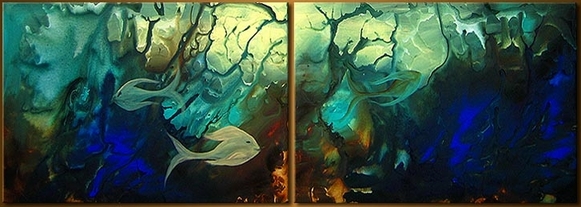
artist: Osnat Tzadok
Out of this vision , in my "rational" mind I think more and more how foolish we are, how inflated in our sense of our abilities to think that we can "protect" Gaia from our kind. And if we're honest, we don't do it for Her, we are just trying to preserve our real estate, our playground, things we feel sentimental about, our way of life.
There is not one thing we have made which did not come from the earth - the concrete and glass, the rusting metal. We ripped it all from her breast, and when we push too far, a great change will come. Our plastic and trash and destruction will somehow be re-shaped as nothing more than strange deposits of minerals and organic material, and what is left of our race, if anything - will we be as the Fomorians or as the Tuatha Dé Danann? Or maybe Manannán's children this time?
As I typed this from my handwritten notes just now, I also remembered that Manannán is the trickster, killing and re-animating the men of the fortress to make a point, as if it's nothing.
Continue to part 3...
Here are some tales of Manannán in His role as trickster-teacher.
Bride. Light.
Introduction
In meditation, like many other people, I have constructed through imagination a place. In my case, I take a ritual walk to a beach where often I enter at a door, to be greeted by a mysterious and kindly nun-like figure. She guides me through a beautiful spiral building to where I have something like an apartment of rooms, where I may meditate or meet guides and Gods. I may also go outdoors into a magical world. At other times, having reached the beach, I may choose to remain out of doors where I have also had many literally wonder-full experiences.
Most of the experiences, or visions, have felt quite personal. I may have shared them with a few friends. However, very recently I had three visions which I feel compelled to share. I don't claim that they necessarily contain any great message for humanity. I don't claim anything. They are what I saw when I meditated. Are they just the product of my imagination, or something more? I leave that to the reader to decide. Maybe it's not important to answer this. However, I feel that they did not come simply from my imagination. I feel that there is more to this - but I make no claim beyond "I feel". When the great Christian mystics had their visions, they were often in the awkward position of being accused of heresy or insanity. As a Pagan, I have no pope or bishop to approach for permission to publish, no panel of inquisitors. In this day, I am more likely to be accused of the heresy of belief. Ah, well!
I was on land again with the Lady, and she showed me the beautiful woods and pastures not far inland, where black horses ran and frolicked - and she said that this was for me.
Next she showed me that my body/spirit is a shrine, and this was represented by a kind of gothic chapel. She gave me a bright candle and showed me how this one bright light is all I need to illuminate this space.
I puzzled a little about Bride, Manannán, Epona - which goddess is earth, which is sky? I don't really think that the question can be answered but I understand that Bride is pure light.
Continue to part 2...
Update: You might enjoy this video I made about Bride, and Imbolc.
An experience with ancestors of place. Monday night being the Hunter's Moon, I had plans to spend some time outdoors enjoying nature, honouring my ancestors and communing with any spirits who came my way. However, in a quiet moment on Monday afternoon, while I was thinking about my plans, some very strong impressions came to me. They unfolded almost like a story in my mind, as if someone was telling me this. I found it quite odd, and to be honest, wondered whether my writer's imagination was filling in the details a little, although I did my best to avoid that. This is the story - I was hardly more than a boy. I was walking up the hill from the river. The moon was as it is now and the sun had set in silver and coral. As I walked, the grass tops, before my eyes on the horizon, were like many small crescent moons. Deer had been seen. My older sister was to be married and I wanted a soft skin for her. She had always been kind to me. The land was not as it is in your time. The land was whole and beautiful, like the skin of a fine animal, shaggy with autumn grass. Now it is a confusion of trees and the false rivers and streams that white men make. They sicken the land with water and salt and big machines. I know you do not like this. I think you can see a little into the old time. I could find no deer. Not even a rabbit or badger moved about. I never saw the bear before she ended my life. I travelled to the world of spirits and it was a good world. I asked to be an eagle, and I think they laughed quietly at me. I became a sandhill crane, and lived a good life until I was old and sick, when I froze to death. After that I lived many lives and saw many wonderful lands. I have not walked the earth in a breathing body for a long time. There is other work to do. But you reached out to me, so near to the place where I was looking for deer. |
Archives
March 2023
Categories
All
Blogroll |
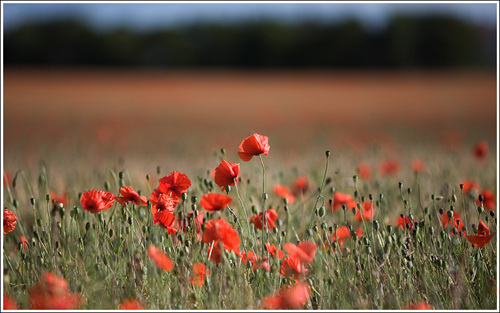
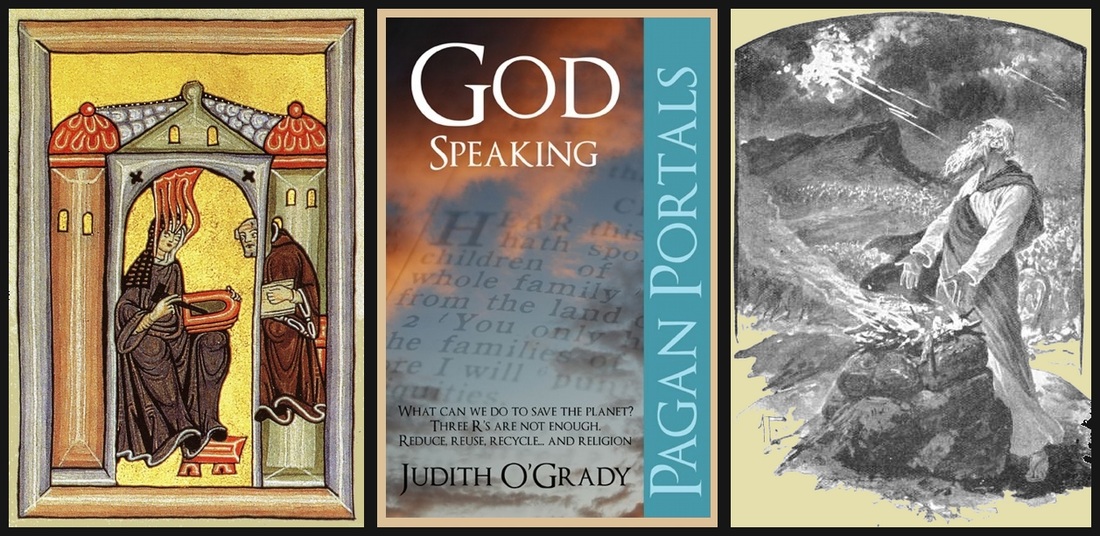


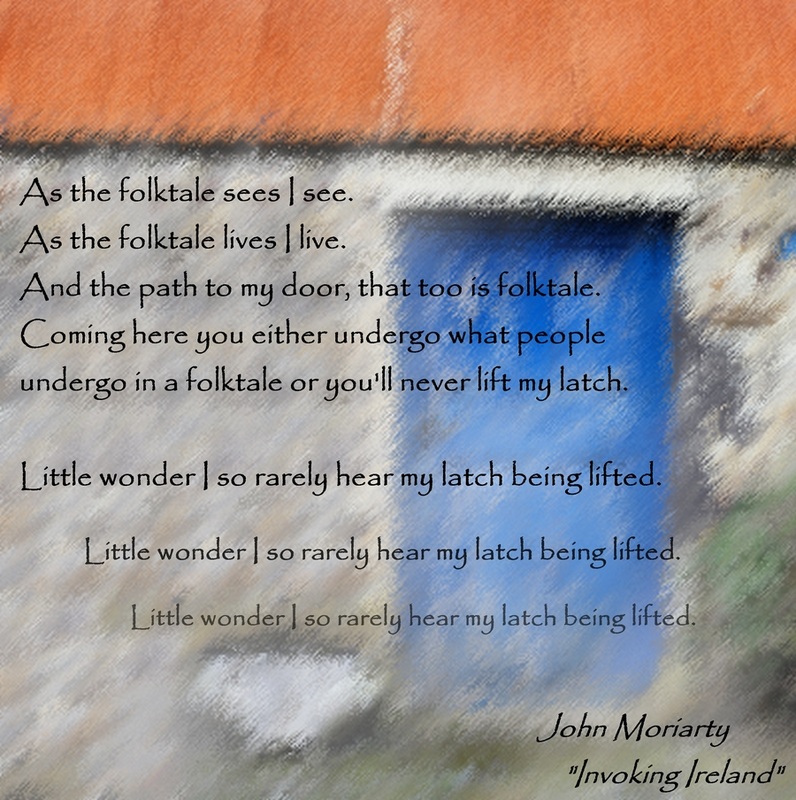
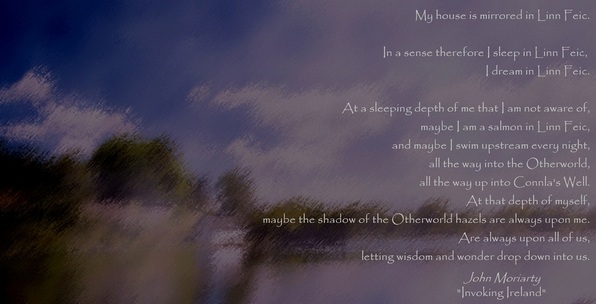
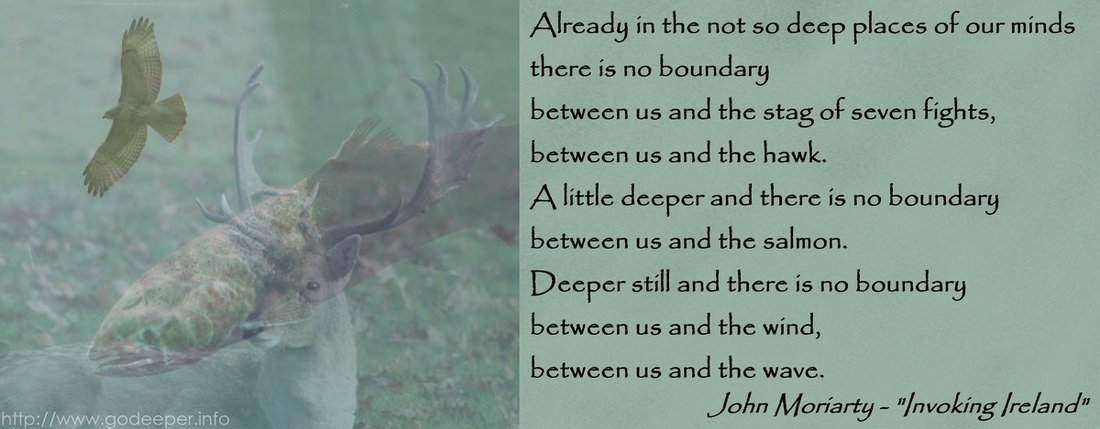
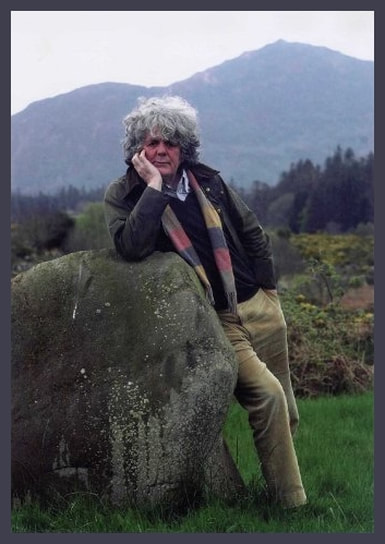
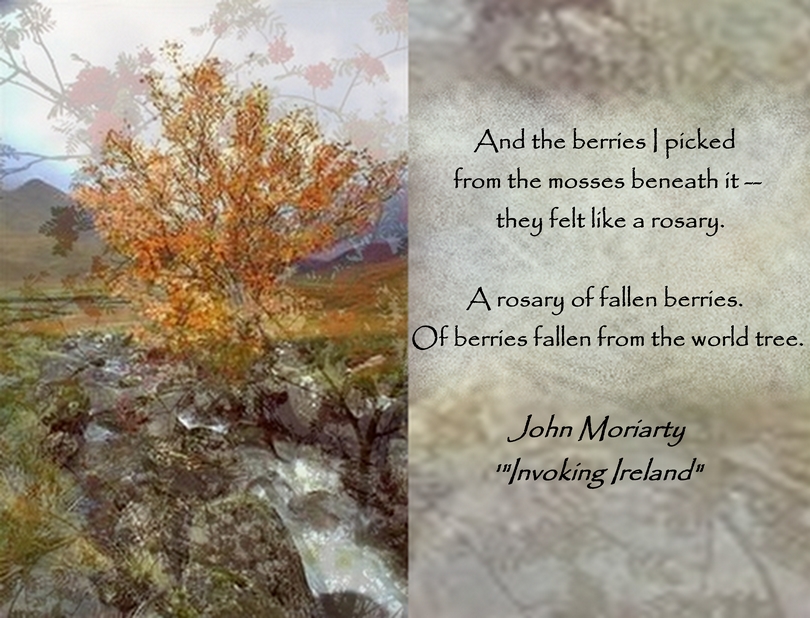
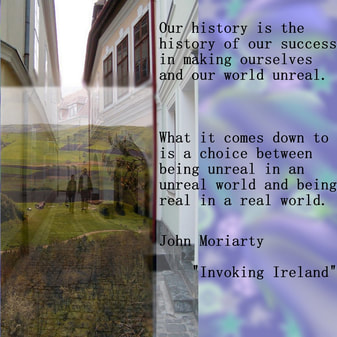
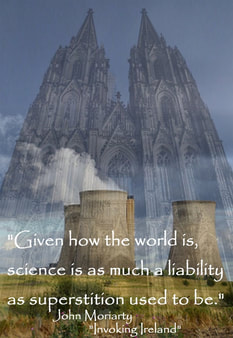
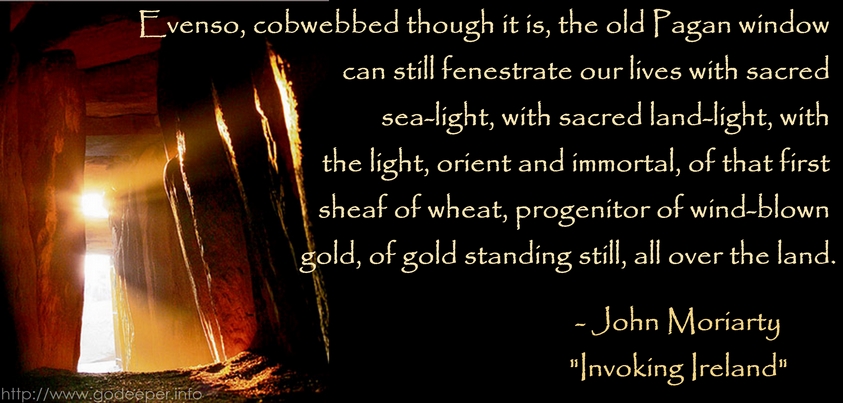

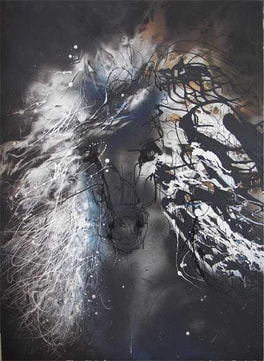
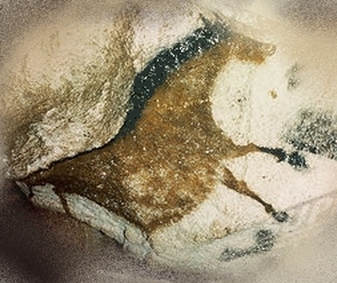
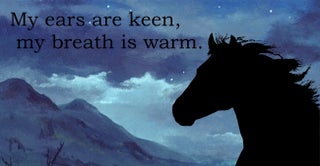

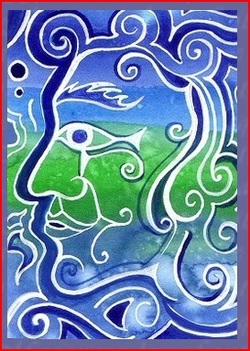
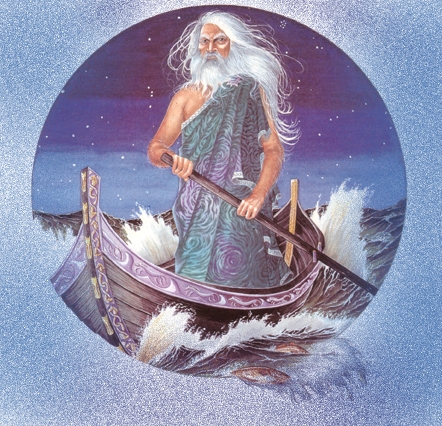

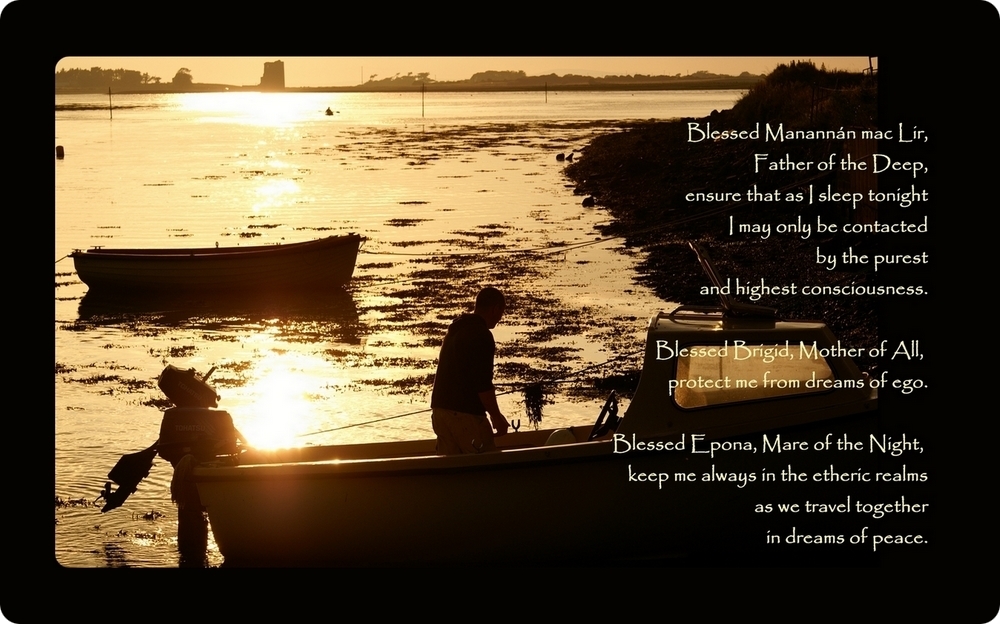
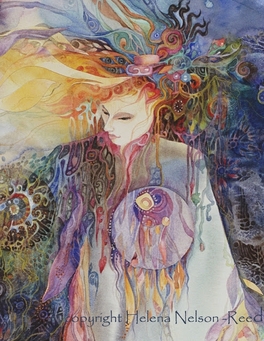
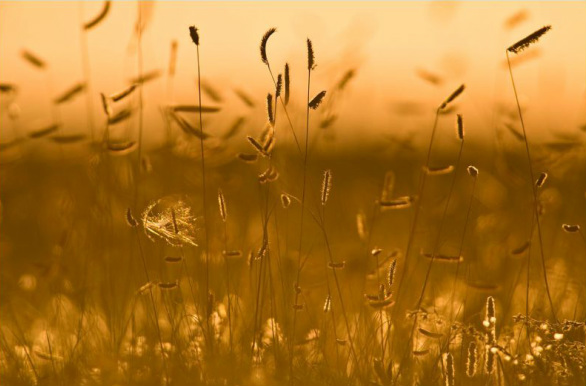
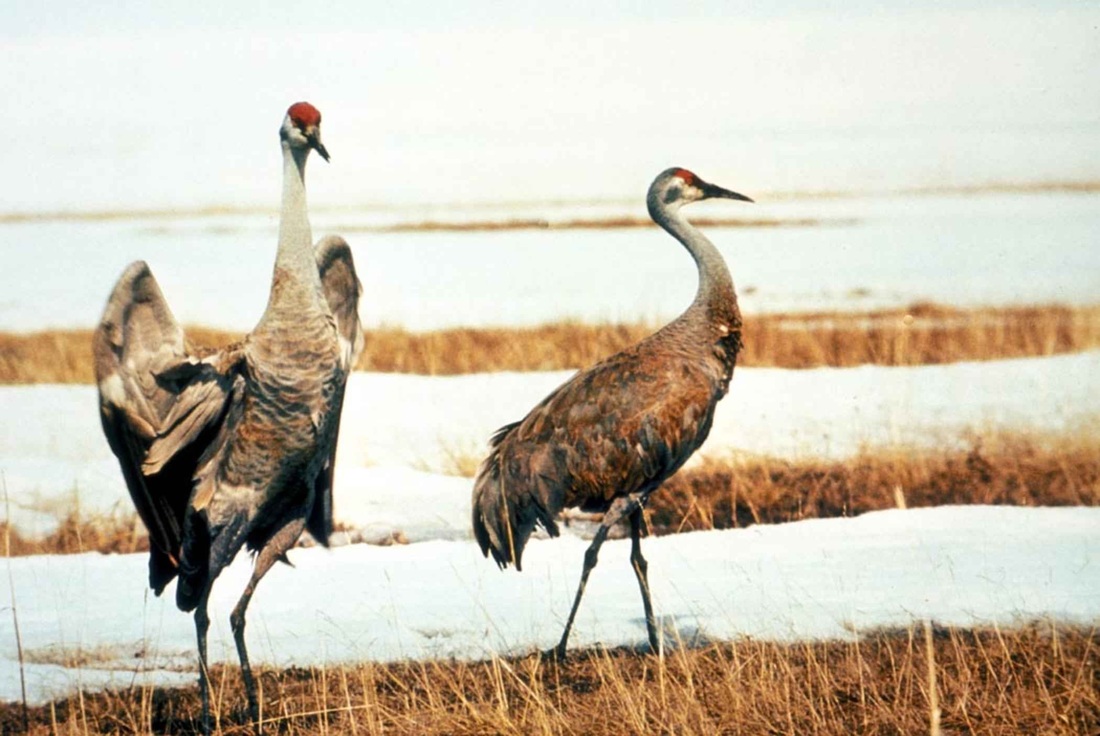
 RSS Feed
RSS Feed


